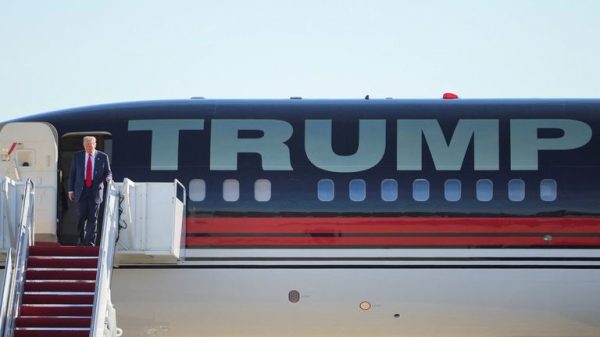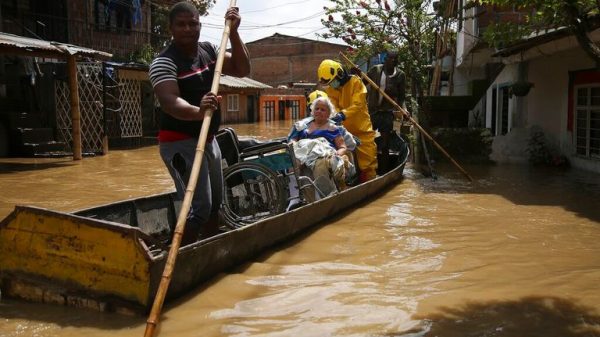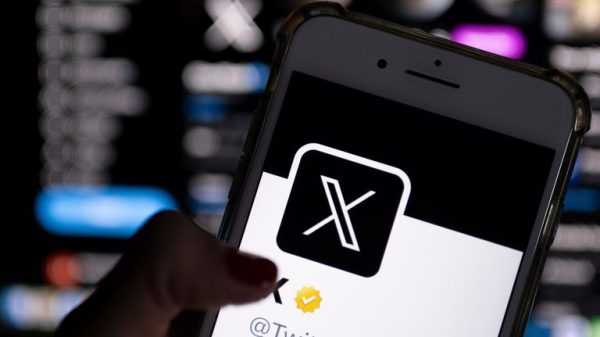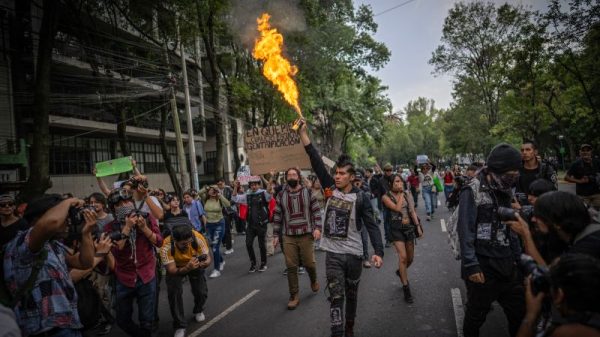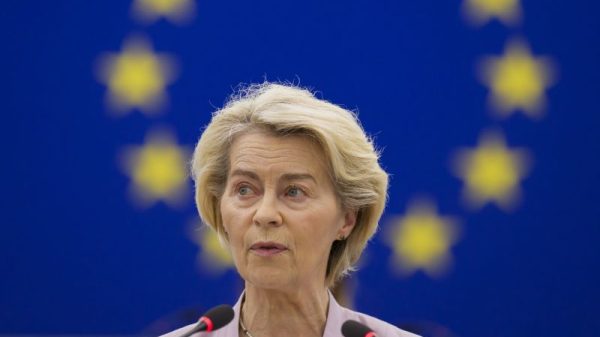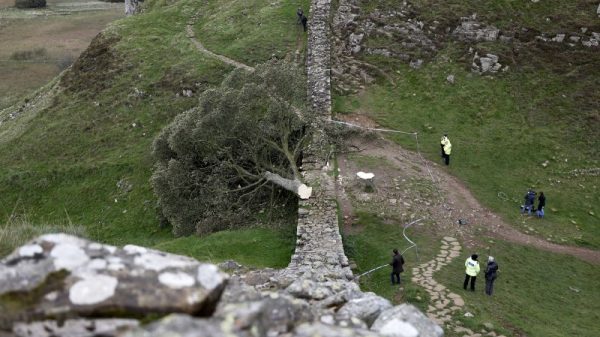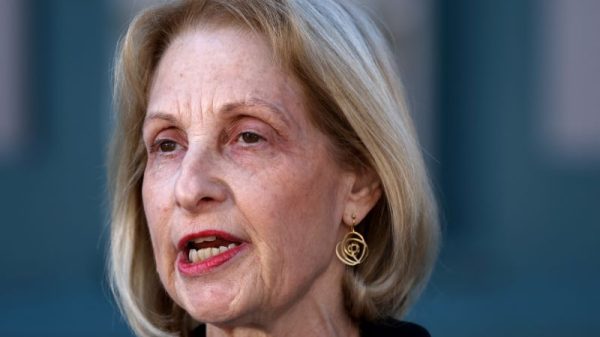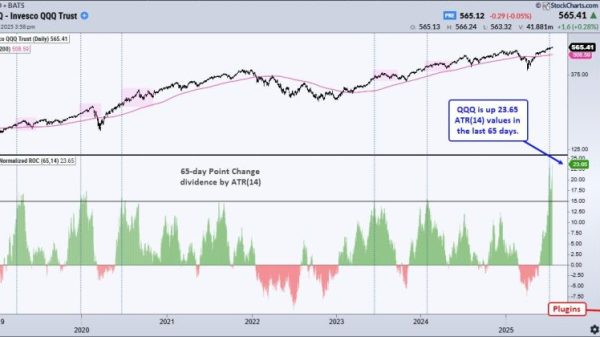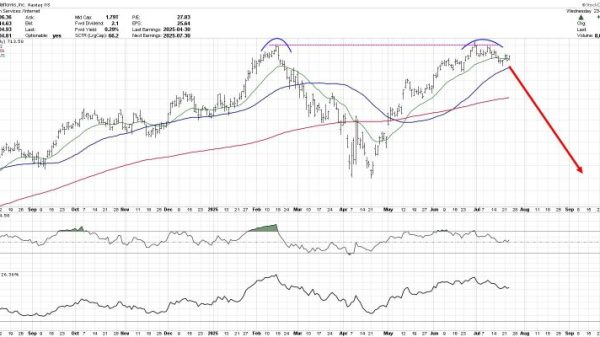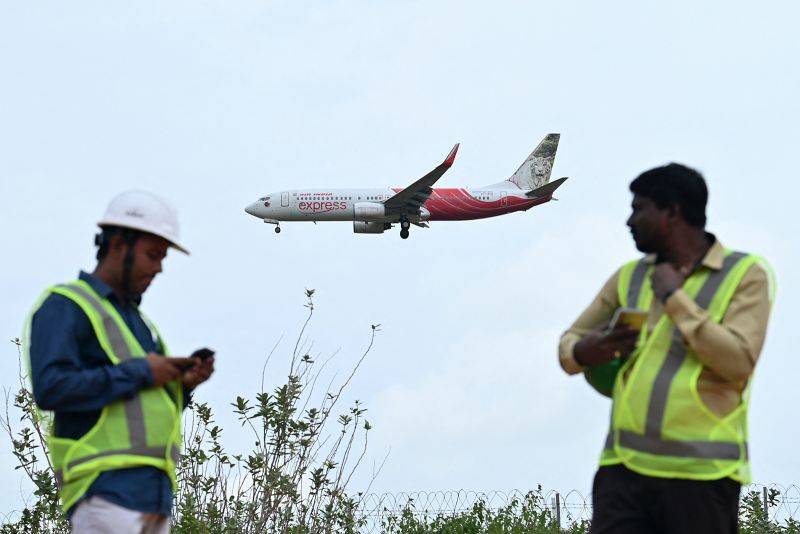Indian airlines have received more than 100 hoax bomb threats in a span of a few days, forcing planes to delay, reroute and make emergency landings – throwing the country’s aviation industry into costly disarray right before one of the biggest festivals of the year.
The epidemic of hoax threats has targeted both international and domestic flights, causing chaos on long-haul trips headed for places such as New York. Although one arrest was made last week, with authorities vowing to punish perpetrators potentially with jail time, the spate of threats has continued, often sent through emails and social media posts.
One airline alone, the budget company IndiGo Airlines, received nearly 30 bomb threats in four days since Sunday, according to statements by the carrier. Other Indian airlines, including Akasa Airlines, SpiceJet and Alliance Air, have also been impacted.
The highest-profile hoaxes targeted Air India last week; one flight en route to Chicago had to make an emergency landing in Canada’s northernmost city in the Arctic, while another flight headed to Singapore had to be escorted by Singaporean fighter jets, with bomb disposal squads waiting at the airport.
Since the flurry of hoaxes first started around mid-October, “we have [had] 150 to 160” threats, said Sanjay Lazar, an aviation expert and former Air India crew member.
Bomb threat hoaxes aren’t a new phenomenon in India – several airports received similar threats in April and June this year. But the sheer frequency and level of disruption in the past two weeks has been unprecedented, sending investigators scrambling to determine who is behind the threats.
Police in Mumbai said last Tuesday that they had arrested a minor suspected of posting threats against IndiGo Airlines on X, formerly Twitter. Police are also questioning a second minor, and “there are chances he played a role in this,” a spokesperson said.
But no further arrests have been made, and more threats have come in despite authorities stepping up security measures, threatening legal punishments, appeasing airlines and reassuring panicked passengers.
“Even though there are hoax threats, we can’t take the situation non-seriously,” said Civil Aviation Minister Kinjarapu Ram Mohan Naidu in a news conference on Monday. “The safety and security of people and convenient travel … is always our utmost priority.”
With less than a week until Diwali, the festival of lights – which sparks a travel boom each year as millions of Indians fly domestically and diaspora members come home from abroad – experts worry that the ongoing hoaxes could wreak travel havoc.
Millions of dollars lost
Each bomb threat causes a ripple effect of disruptions, costing both airlines and passengers huge amounts of time and money, said Lazar.
This is partly because of strict protocols set out by outdated laws, he said. Under a 1982 law last amended in 2010, “every threat has to be taken into consideration,” he said – even though the law doesn’t mention modern factors such as social media that complicate the task.
There’s also the “lengthy process” of bureaucracy and coordinating with various committees, Lazar said.
Authorities follow these steps “word for word” with every single threat, said aviation minister Naidu. “Whenever there is a bomb threat case happening, if it is through a call or if it is through social media or if it is through some other means, we have a strict protocol that we follow,” he added.
But the threats – and their aftermath – have caused massive headaches for airlines. Not only do they have to disrupt passenger plans by rerouting or making unexpected landings, but they must also cope with the hours-long process of isolating the plane, checking the aircraft from top to bottom, screening every piece of luggage, and allowing a “cooling period” for the plane afterward, expert Lazar said.
“It’s not very simple … there’s a lot of cost and time involved.”
While the airlines have not disclosed the extent of their losses, Lazar estimated each affected carrier has lost hundreds of thousands of dollars – and the cost for the industry as a whole is likely in the millions.
The losses rack up through landing charges, fuel dumping, bomb disposal squad fees, and providing services for passengers including accommodation, alternate flights and refunds.
These disruptions would be a nightmare at any time – but particularly in the run-up to Diwali, which begins on October 31. Also called Deepvali, the festival of lights is celebrated by more than a billion Hindus, Sikhs, Jains and Buddhists around the world, with families gathering to feast on food, exchange gifts and make religious offerings.
That also makes it the second-biggest travel period of the year in India, after the Christmas to New Year period, according to Lazar.
By September, flight bookings for the Diwali period had seen an 85% increase on last year – surpassing pre-pandemic levels, according to World on Holiday, an Indian organization that analyzes travel and hospitality data.
“Passengers are going to be scared but those who need to fly will fly … so what’s going to happen if this havoc is created around Diwali?” Lazar said.
He added that while he was worried about the recent string of bomb threats, he was “even more worried about what’s going to happen around Diwali and Christmas.”
Government efforts
Authorities still don’t know who is making these threats and why – though Naidu, the aviation minister, blamed the recent hoaxes on “minors and pranksters” in a post on X.
On Monday, he also admitted it’s hard to even say whether the threats are coming from inside India due to the potential use of VPNs to mask users’ locations.
Authorities are now investigating and coordinating with different government ministries, the minister added. Meanwhile, airports have increased the number of security checks and the use of CCTV cameras to monitor their area “more thoroughly.”
The civil aviation ministry is also trying to introduce legal changes as a deterrent. If passed, the amendments would put hoax perpetrators on a no-fly list and criminalize hoaxes as a “cognizable offence,” which allows police to arrest suspects without a warrant, Naidu said.
Lazar argues the proposed measures are far from enough – saying it was “stupid” to dismiss the hoaxes as “the work of a prankster” given the severity of the disruption and potential danger of a real threat.
Authorities should use the country’s technological heft to track down online users, he said, including working with international agencies and social media platforms.
Until then, “I don’t believe we’ve seen the end of this,” he said.








